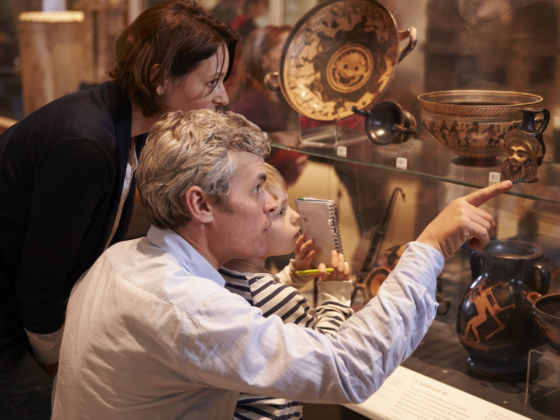Learning to share, and return what’s not ours, isn’t just a skill that applies to the kindergarten classroom. European countries like France, Germany, and the UK, have long faced pressure to return culturally-significant artifacts plundered from their former colonies. Now, it seems like they’re finally listening. Increasingly, these countries are taking steps to either return, or pursue joint-ownership, of colonial treasures.

French President Emmanuel Macron, for example, has declared his intention to temporarily — or even permanently — return artifacts taken from Burkina Faso, a former French colony. “Africa’s heritage,” he said, “cannot just be in European private collections and museums.”
France isn’t alone in exploring how to restore the cultural heritage of its former colonies. This month, Germany’s culture minister Monika Grütters published a code of conduct for museums, dealing with the proper treatment of colonial-era artifacts. It requires the publishing of historical context, and exploring the possibility of long-term loans or joint-custody. She also decided that the German Lost Art Foundation would dedicate resources to looted and displaced Nazi-era art.
London’s V&A Museum has been praised for its exhibition on Ethiopia’s Maqdala Treasures, and for calling the original plundering “shameful”. However, the museum still has not offered to actually return the items, suggesting a long-term loan instead. The British Museum, which houses over 700 items looted from the Kingdom of Benin (modern-day Nigeria), has always rejected restitution claims because, as a spokesperson said, “there is great value in presenting the Benin collection in a global context, alongside the stories of other cultures.”
It’s a tough problem to solve. Should modern-day nations answer for crimes committed three centuries ago? Do former colonies have an inherent right to objects with cultural significance? Is colonization and thievery an important part of an artifact’s history; and by that virtue, does the thief have the right to keep and display the artifact in context? Having possessed these artifacts for so long, European powers probably now feel a degree of legitimate ownership over them — but possession, even for several centuries, does not necessarily equal rightful ownership.
Even with strides being made, these questions aren’t likely to be fully resolved anytime soon.
H/T: Lonely Planet